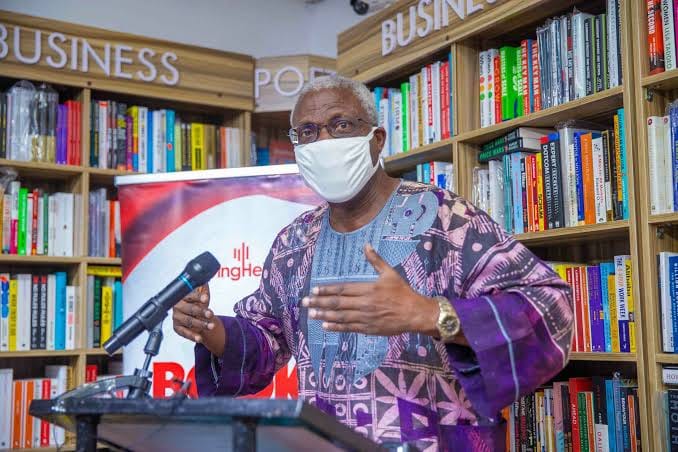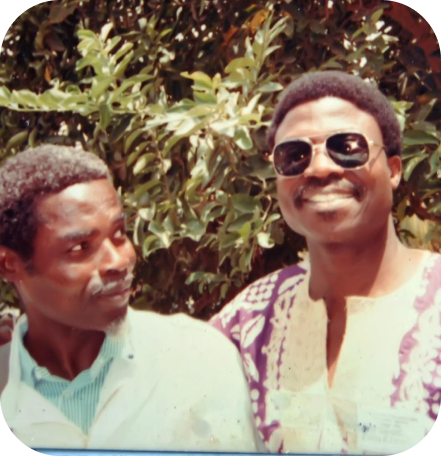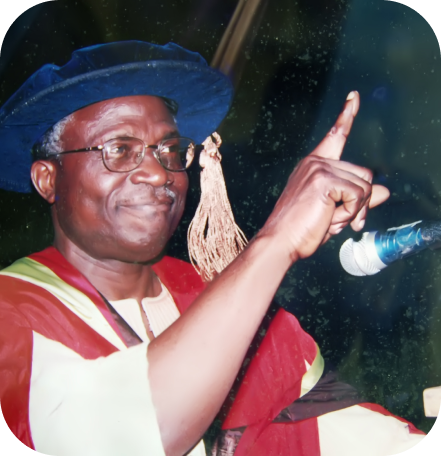Education
Born in Ìkẹ́rẹ́-Èkìtì, Nigeria, in 1947, Ọ̀ṣúndáre is widely regarded as one of Africa’s preeminent writers, scholars, and public intellectuals. He is a poet, playwright, essayist, human/environmental rights activist, and Distinguished Emeritus Professor of English at the University of New Orleans. He received his primary education at St. Luke’s School, Ikere (graduating as the best student); secondary education at Amoye Grammar School, Ìkẹ́rẹ́ (where he edited the school magazine and graduated in 1966 with what was hailed as one of the best results in the West African School Certificate Examination); and Higher Secondary School education at Christ’s School, Adó-Èkìtì. At Christ’s School, Ọ̀ṣúndáre served as Editor-in-Chief to the team that revived Àgìdímọ̀, the school newsletter. He went on to edit The Green Champion, the official magazine of Dallimore House, and collaborated with his former teacher, Christopher Ward, in the writing of Not In Name Only, the history of Christ’s School. He earned his university education from three continents: B.A. (Hons) in English from the University of Ìbàdàn, Nigeria; M.A. in Modern English from the University of Leeds, UK; Ph.D. in English from York University, Toronto, Canada.
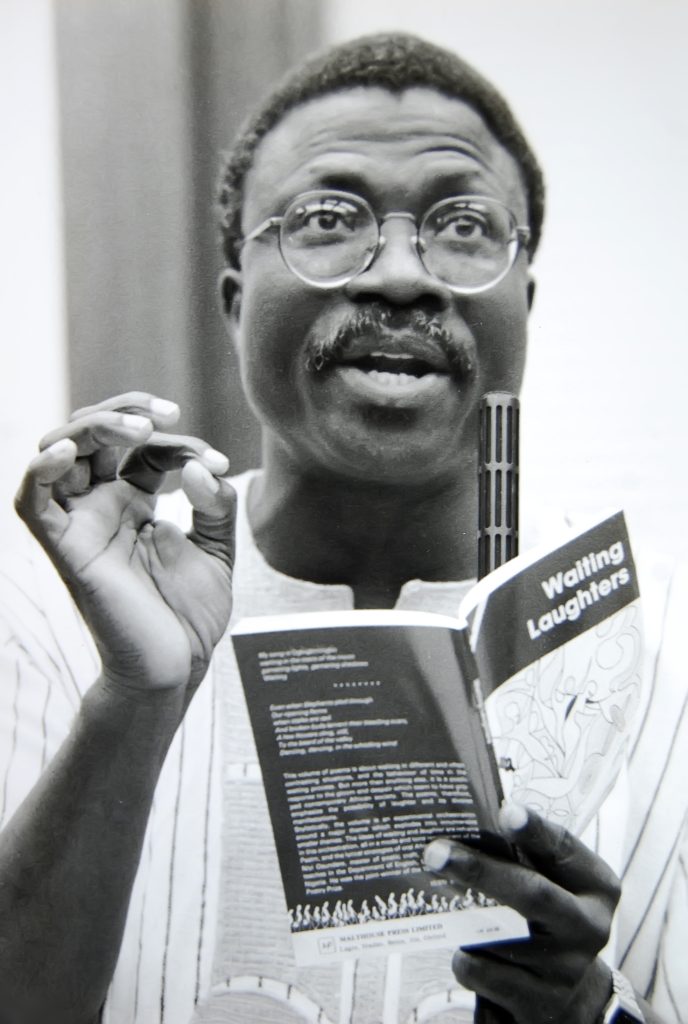
Teaching Career
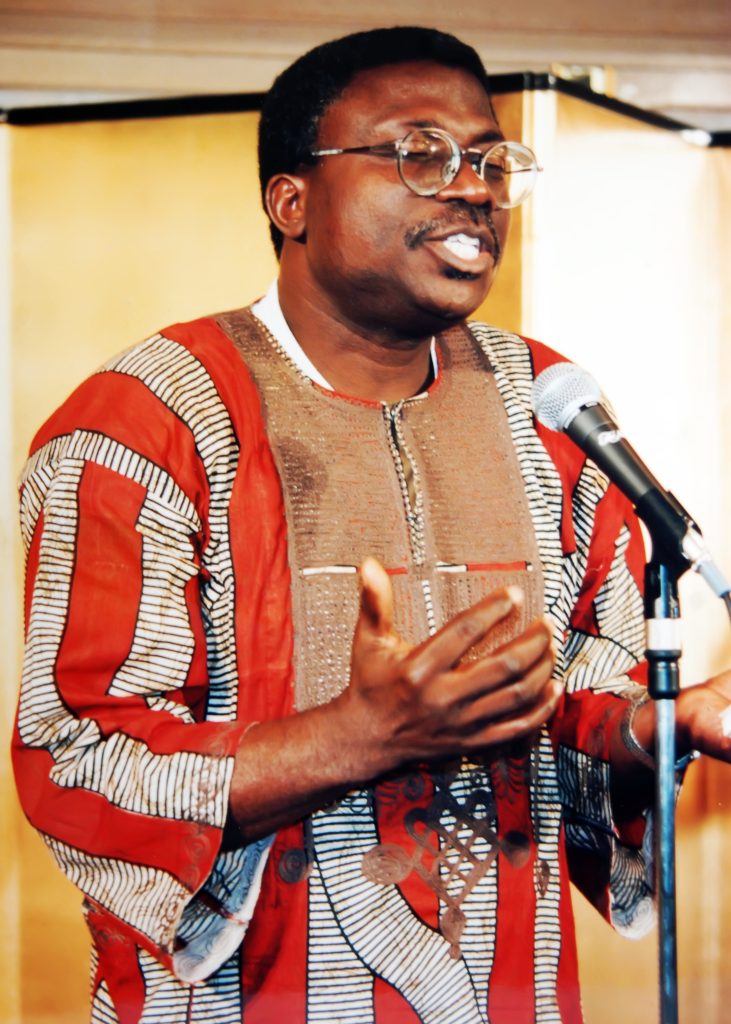
Níyì Ọ̀ṣúndáre’s life as a teacher spans several decades. He started his university teaching career at his alma mater, the University of Ìbàdàn, in 1974, rising to the rank of Professor in 1989, and was Head of the English Department from 1993 to 1997. He was a Fulbright Scholar-in-Residence at the University of Wisconsin-Madison (1990-1991) and Visiting Professor and Poet-in-Residence at Franklin Pierce University, Rindge, New Hampshire (September 2005 to January 2006). In his 24 years at the University of New Orleans, he was selected University Research Professor, Endowed Africana Professor, and, ultimately, a Distinguished Professor of English in 2012. He retired in 2020.
As a teacher for over 40 years, he is keenly aware of the importance of education in human development and passionately involved with the strategies for elevating the quality and character of education as a tool for national and international understanding, development, and cooperation, and prime investment in the future. Many of the products of his creative writing workshops in Nigeria and elsewhere have become productive writers, while a substantial number of those in the regular academic categories are now notable scholars and professors.
About his passion for teaching, he has this to say: “For me, the classroom is a vital space inhabited – no, lived – by students and teachers as partners, even collaborators, in a process of intellectual and social inquiry and exchange…. I strive to be the kind of teacher who challenges and inspires…”
Literary Career
Ọ̀ṣúndáre is the author of over 20 books of poetry, two books of Selected Poems, four plays, two books of essays, and numerous scholarly monographs, articles, and reviews on literature, language, and culture. Some of his works include Songs of the Marketplace (1983), Village Voices (1984), Waiting Laughters (1990), Days (2007), and City Without People: the Katrina Poems (2011). His poems have appeared in over 100 journals and magazines (including online) in different parts of the world, while many of them have been translated into multiple languages including French, Italian, Korean, German, Spanish, Portuguese, Arabic, Slovenian, Serbian, Czech, and Chinese. A believer in the intimate relationship between poetry and music and the philosophy of poetry-as-performance, he has read and performed his poetry across the world.
To him, poetry and music are Siamese twins joined in every vital part of their bodies. Most times he sees his lines with his ears. His rhythm responds to the deep-timbred cadence of the drum.
